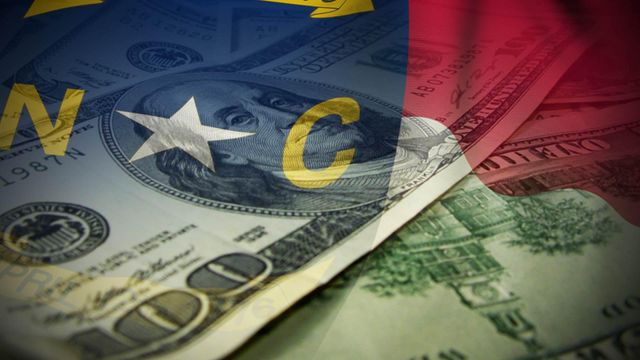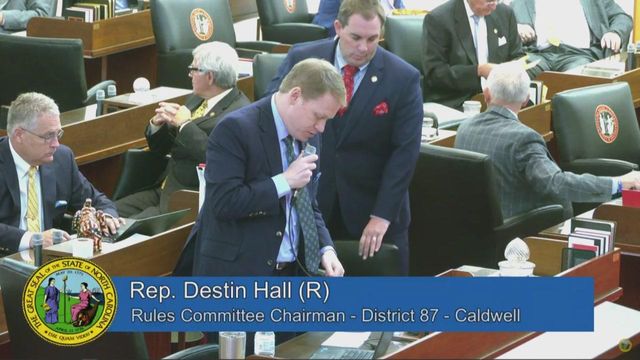Cooper signs overdue state budget hours after lawmakers approve it
The $25.9 billion state budget became law Thursday afternoon, hours after clearing the General Assembly.
Posted — UpdatedThe House voted 101-10 on Thursday morning to give its final approval to the spending plan. The Senate voted 41-7 in favor of the budget on Wednesday.
By 3:30 p.m. Thursday, Gov. Roy Cooper had signed it.
"This budget moves North Carolina forward in important ways," Cooper said in a statement. "Funding for high-speed internet, our universities and community colleges, clean air and drinking water and desperately needed pay increases for teachers and state employees are all critical for our state to emerge from this pandemic stronger than ever."
Cooper said Tuesday that he would sign the long-overdue budget, which he called "imperfect."
"It's a good day for our state," House Majority Leader John Bell said during the House debate.
"We need to get this money out to the people that need it," agreed Rep. Donny Lambeth, R-Forsyth, a House budget writer. "This is a once-in-a-generation budget. The state of North Carolina has never never invested more money in education."
"We've got to invest in all of our people," said Reives, D-Chatham. "We talk about school choice a lot out here, but it stops being a choice when the public education system isn't working anymore."
Budget writers did create a $100 million program to boost teacher salaries in low-wealth counties and put bus drivers, cafeteria workers and other school staffers on the path to earning at least $15 an hour.
The budget also gives state employees an average 5 percent raise over two years, plus a bonus of at least $1,000 in federal aid. As with teachers, those who make less than $75,000 will get an extra $500.
But the proposal also includes the largest tax cut in state history. The personal income tax rate will drop to 4.99 percent next year, and the corporate rate will be zero by 2030. Also, military retirees will no longer have to pay state tax on their pensions.
Those tax cuts were a sticking point for some House Democrats.
"When all tax cuts are added up in this budget and they're fully implemented in 2030, we stand to lose $8 billion annually in revenue. That's 20 percent of our operating budget," said Rep. Marcia Morey, D-Durham.
But Cooper's announcement Tuesday, which followed weeks of closed-door negotiations between his administration and legislative leaders, allowed most Democrats in the legislature to vote in favor of the budget and get money to residents, businesses and local governments in their districts.
"[People] have also asked me if I thought this was a big win for the House and the Senate and perhaps a loss for the governor. Truly, this is a win for everyone – most importantly, the people of this state," said Rep. Jason Saine, R-Lincoln, the House's top budget writer.
Cooper said he plans to wage those fights in court, rather than holding up a budget that was supposed to be enacted by July 1.
"I will continue to fight for progress where this budget falls short but believe that, on balance, it is an important step in the right direction," he said.
North Carolina is the only state in the U.S. that hasn't adopted a state budget for the current fiscal year.
Because of an impasse between Cooper and Republican lawmakers, the state hasn't had a working budget since the 2018-19 fiscal year. State government has operated under that budget for the past two-plus years.
Related Topics
• Credits
Copyright 2024 by Capitol Broadcasting Company. All rights reserved. This material may not be published, broadcast, rewritten or redistributed.






